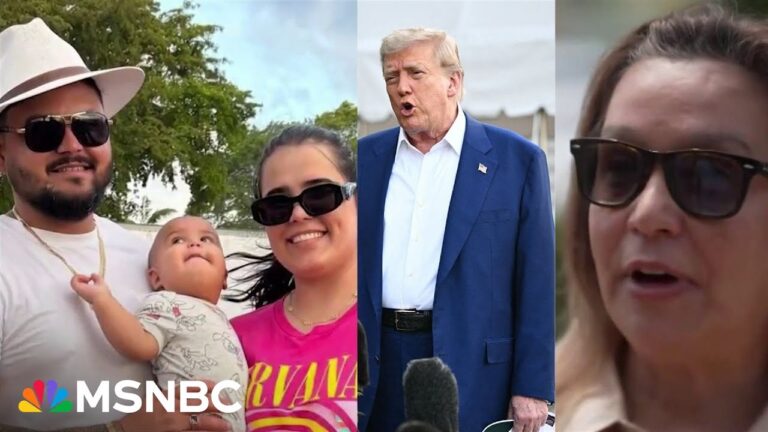Video at the bottom!
The discussion centers around the significant impact of recent deportation policies on the Cuban and Venezuelan communities in Florida, particularly as articulated by Republican Congresswoman Maria Salazar. She highlights concerns about the loss of thousands of workers amidst ongoing deportations under the Trump administration. The mood in these communities is a mix of fear and uncertainty, as many immigrants who had previously supported Trump now feel betrayed.
The immigration pattern has seen a remarkable influx of Cuban immigrants, with estimates indicating that half a million have arrived since 2022. This wave coincides with increasing disappointment from those who once formed a strong voting bloc for Trump. Many are vocal about their distress over deportations happening in a stronghold of Republican support, especially as the administration moves to end Temporary Protected Status for over 500,000 individuals.
Elena’s story exemplifies the personal toll of these policies, detailing how her husband, after being captured previously, faced deportation again despite his humanitarian entry into the U.S. Families are grappling with the harsh realities of reports that prior understanding of deportation policies were misunderstood—believing they would affect only criminal individuals.
Mental health struggles are rampant in the Venezuelan community, where individuals express a preference to end their own lives rather than return to a crisis-ridden Venezuela. Economic impacts are also evident, with local businesses reporting decreased revenue due to the instability and fear gripping immigrant proprietors and their clients.
Experts assert that the political fallout for the Republican Party from these immigration policies may be limited, suggesting that significant change would require Democrats to present a compelling alternative vision. Ultimately, individuals within these communities express confusion and frustration over the shifting legal landscape and the absence of due process, which contrasts sharply with previous administrations.
As tensions continue to rise, these communities find themselves navigating a complex and often hostile immigration system, with many questioning how policies enacted under one president can completely alter their legal status under another.


